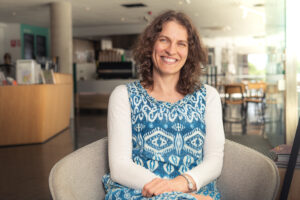
More than 17,000 refugees are estimated to resettle in Australia this year, and among them will be significant numbers of young people who bring a range of strengths and make considerable contributions; however, they are more likely to struggle with mental illnesses including anxiety, depression and Post Traumatic Stress Disorder (PTSD) than their Australian-born peers and other migrant young people.
There is currently limited research to suggest why this is the case and how young refugees can be better supported – but a new $800,000 research project ‘Understanding social determinants of mental health for young people from refugee backgrounds to improve mental health’ led by Flinders University’s Associate Professor Anna Ziersch, will develop a framework for improved mental health for young refugees.
This project is funded by Medical Research Future Fund’s (MRFF) Million Minds Mental Health Research Mission and will explore the prevention, early intervention, and management of young refugees’ mental health.
“Refugees are expected to adjust quickly to their new environment, yet this often puts a considerable burden on their mental wellbeing,” says Associate Professor Ziersch from the College of Medicine and Public Health at Flinders University.
“They face complex social, economic, and physical environments that can put them at a significantly higher risk of developing mental health issues.
“The ages of 12-25 is a critical period of life, where young people acquire key emotional and cognitive abilities for independence and the foundations for future health, mental health and wellbeing are laid down.
“For young refugees, there are additional challenges in traversing this time and there is a real need to understand these challenges, and how we can improve the focus of our support.
“Challenges associated with the refugee journey, such as family separation, culture shock, changes to family roles, disrupted education and discrimination can contribute to difficulties in educational settings, connecting with peers and developing a sense of belonging, and mental health services can be difficult to access and also not be well enough equipped to meet their needs.”

However, Associate Professor Ziersch notes there are also important community resources that can work to support mental health for young refugees, if young people are able to tap into these.
The national collaboration involves 12 key refugee, mental health and community organisations, and will engage with community and religious leaders to ensure the new recommendations consider young people’s lives in the context of their community.
The research will take a family and community approach using existing data, interviews and consultation with young people and their families, community leaders and mental health practitioners to understand the social determinants for young refugees to improve mental health.
“The framework will underpin development of more effective future mental health prevention, early intervention and management strategies, enabling young refugees to lead healthier and more productive lives and providing cost savings across health, welfare and service systems,” Associate Professor Ziersch.
“Our work will help inform policies and programs to support the mental health of young refugees and could also be modified to help other groups facing social and material disadvantage or marginalisation.”
The project involves a multidisciplinary mix of experienced Chief and Associate Investigators, representing researchers from Flinders University, Queensland University of Technology, The University of Adelaide, the University of Melbourne, Torrens University Adelaide and York University, as well as service providers, policy makers and community members.

